New Prime Minister Suga Yoshihide: 'Exception' among Japan's political elite
(Baonghean.vn) - In a culture where politics places great importance on origin, from an ordinary person, Mr. Suga Yoshihide has made every effort and tirelessly strived to become Prime Minister of Japan at the age of 71. This is an exception, rare in the land of cherry blossoms.
Humble origin
Mr. Suga Yoshihide was born on December 6, 1948, in a snow-covered village in Akita Prefecture in central Japan. His family was a strawberry farmer. Mr. Suga's father succeeded in breeding high-quality strawberries and was the Chairman of the local strawberry cooperative union. After graduating from high school, student Suga had the ambition to go to university and Tokyo was his destination with the hope of changing his life.
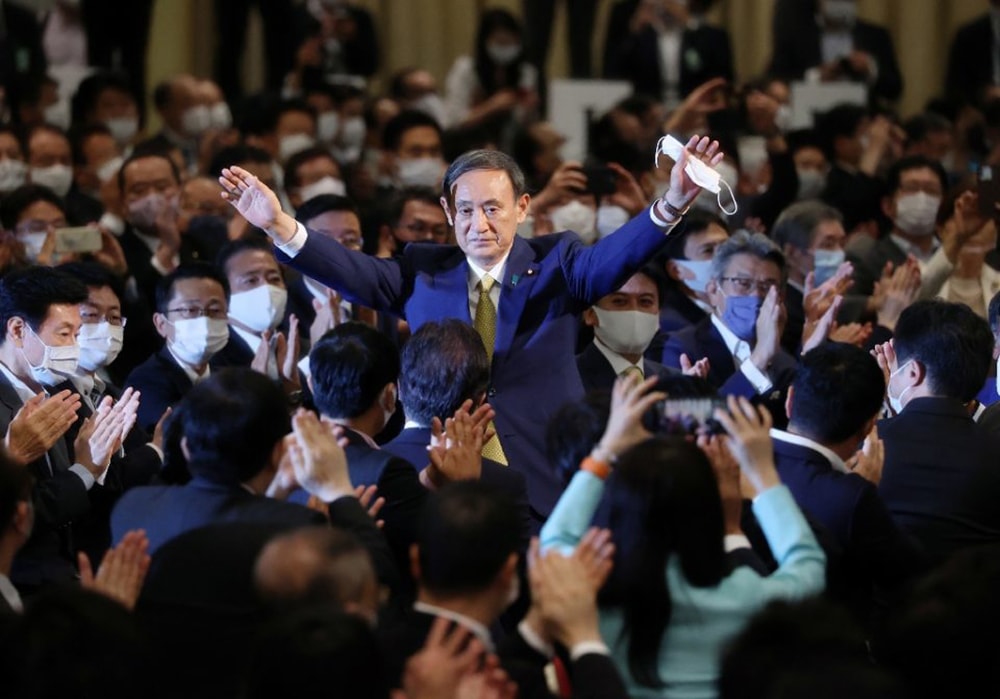 |
| New Japanese Prime Minister Suga Yoshihide (standing). Photo: Kyodo |
To realize his dream, young Suga did not hesitate to take on any job, no matter how difficult. Suga's first part-time job in Tokyo was as an employee at a cardboard factory, then at the famous Tsukiji fish market. After 2 years of working there, in 1969, Suga officially entered the Faculty of Law, Hosei University. To earn money to pay for his studies, the young student had to do many different jobs, from security guard, salesman to low-level editorial assistant...
Persistence, perseverance and a hard-working spirit have helped Mr. Suga gradually rise in Japanese politics.
A few years after graduating and working at an electrical maintenance company, Suga became interested in politics and became a secretary for a member of the Liberal Democratic Party (LDP), gaining in-depth knowledge of commerce for more than 10 years before successfully running for the Yokohama City Council in 1987. There is a story from the LDP that, to campaign, he went door-to-door, including 300 houses a day, and mobilized a total of 30,000 people. By the time of the election that year, he had worn out... 6 pairs of shoes. Just like that, his perseverance, tenacity and hard work spirit helped Suga gradually advance in Japanese politics.
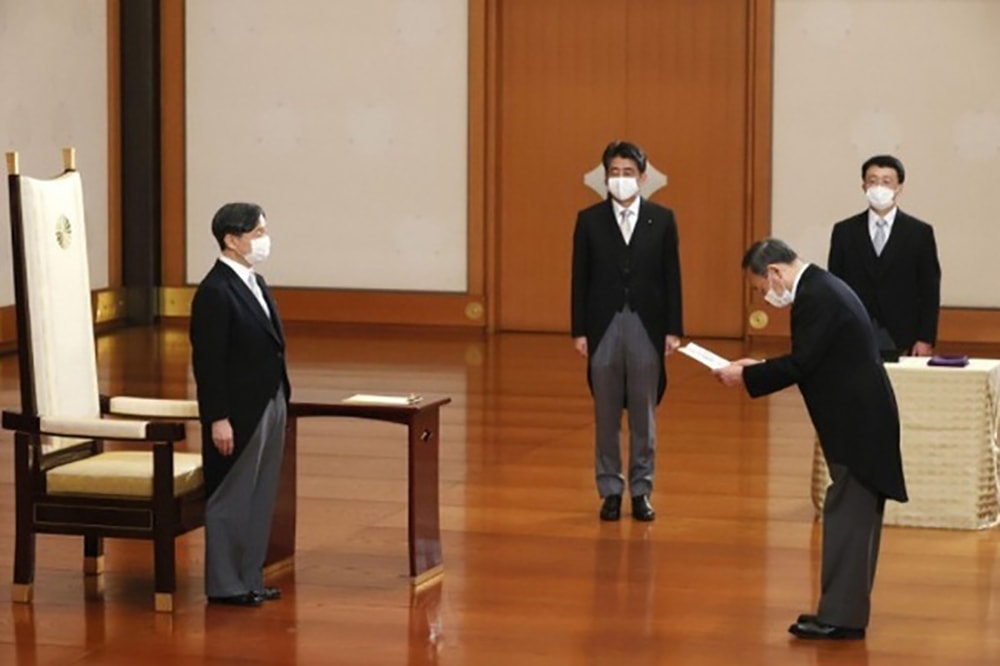 |
| Inauguration ceremony of Japanese Prime Minister Yoshihide Suga. From left: Emperor Naruhito, former Prime Minister Abe Shinzo and new Prime Minister Yoshihide Suga. Photo: Kyodo |
In 1996, he won a seat in the House of Representatives at the age of 47 - a milestone for his entry into national politics. From 2006 to present, he has held many important positions in the Cabinet such as Minister of Internal Affairs and Ministry of Postal Privatization, Minister in charge of Cabinet Affairs (in charge of decentralization reform to local governments), Director General of the LDP's Election Policy Department and the longest-serving Chief Cabinet Secretary, before becoming Prime Minister of Japan. Regardless of his position, Mr. Suga always builds the image of a self-made man, his motto is "where there is a will, there is a way".
“Exceptions” among the elite
Origin ofNew Prime Minister Sugain stark contrast to its predecessorAbe Shinzoand many of his Cabinet colleagues. Mr. Abe is a “family-born” politician, his father was a former foreign minister and his grandfather was a former prime minister. Environment Minister Shinjiro Koizumi is the son of former Prime Minister Junichiro Koizumi. Defense Minister Taro Kono is the son of former House of Representatives Speaker Yohei Kono. Deputy Prime Minister and Finance Minister Taro Aso’s mother is the daughter of former postwar Prime Minister Yoshida Shigeru… All of these politicians come from the Japanese elite, while Suga is clearly an exception.
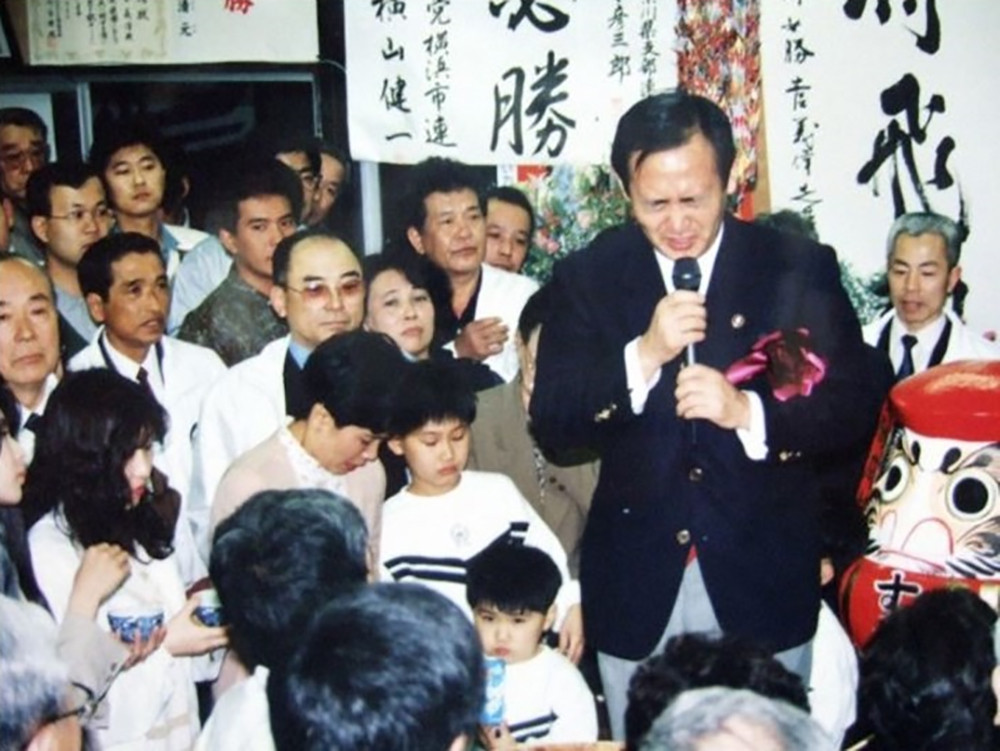 |
| Mr. Suga was first elected to the Yokohama City Assembly in 1987. Photo: Kyodo |
Suga Yoshihide's humble background has helped him empathize with working-class people in Japan.
Some observers believe his humble background has helped him empathize with working-class people in Japan, who have been hit by the economic downturn sinceCovid-19 pandemicand the US-China trade tensions. His personal profile is also seen as a suitable choice to connect struggling individuals who previously felt disconnected from the policies of Japan's political elite. Moreover, in Japan's highly competitive political system, the 71-year-old politician's hard work and dedication are also partly convincing for his selection.
Known as a workaholic, Suga’s daily schedule during his nearly eight years as Chief Cabinet Secretary was described as always packed with work. He woke up at 5am, spent an hour reading the news, including all the mainstream newspapers and NHK TV, then exercised, had breakfast and then arrived at the office at 9am. During the day, he held two press conferences a day as the government’s top spokesman and attended more than 20 meetings. He rarely slept at his home in Yokohama, instead staying at the government housing complex near the office so he could quickly respond to any emergency.
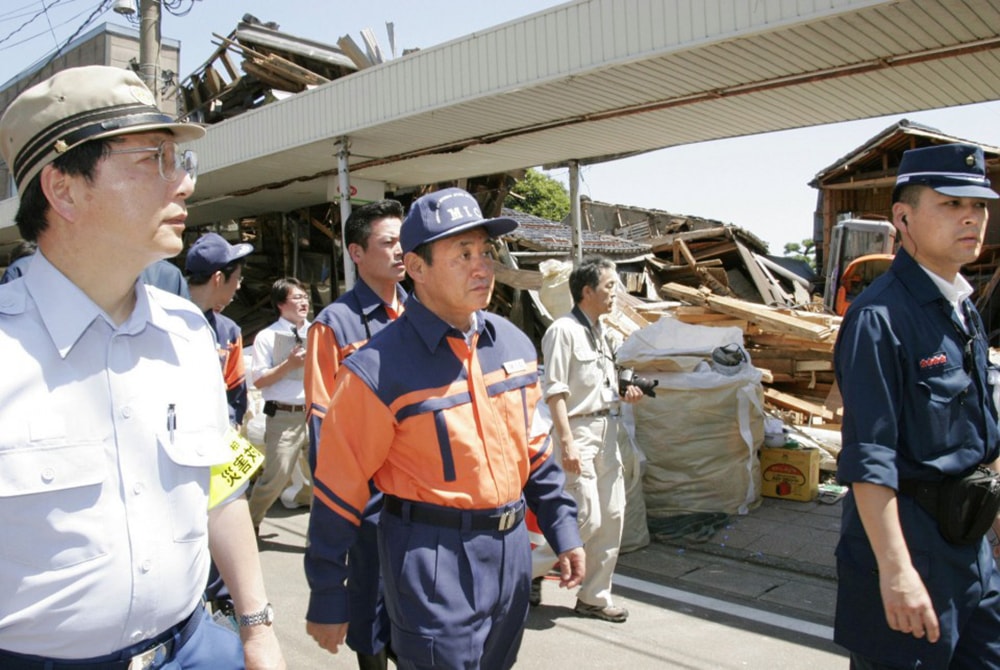 |
| Mr. Suga, when he was Japan's Internal Affairs Minister, visited Kashiwazaki after an earthquake in 2007. Photo: Kyodo |
Kyodo News describes the new Japanese Prime Minister as a self-made man with no legacy or aristocratic temperament, just a warm and unpretentious “uncle”. Young Japanese people affectionately call him “Uncle Reiwa” after he was entrusted with the responsibility of announcing the new era name.Reiwa erawith the accession of Emperor Naruhito in April 2019.
The new test begins
Some observers have commented that Mr. Suga is more inclined to behind-the-scenes negotiations and problem-solving than to strategizing. Therefore, he is considered a special "power vacuum" person, if the next election is held next year. However, according to Dr. Lim Tai Wei, East Asian Institute, National University of Singapore, in the context of Japanese culture, politics and society, an ideal leader is a consensus builder - synthesizing the interests of all stakeholders, mediating between different political factions and interest groups, and meeting political and social interests. And this is completely present in the new Prime Minister Suga.
His most recent tenure as Chief Cabinet Secretary – the longest in Japanese history – gives him a comprehensive view of Japanese politics, its political elite and its apparatus. In fact, he enjoys significant support from political factions within his party, including the largest and most powerful 98-member Hosoda faction led by former Chief Cabinet Secretary Hiroyuki Hosoda. He also enjoys support from the 54-member Taro Aso faction, which is the second largest group, along with the Takeshita faction, within the Liberal Democratic Party (LDP), holding a basic majority.
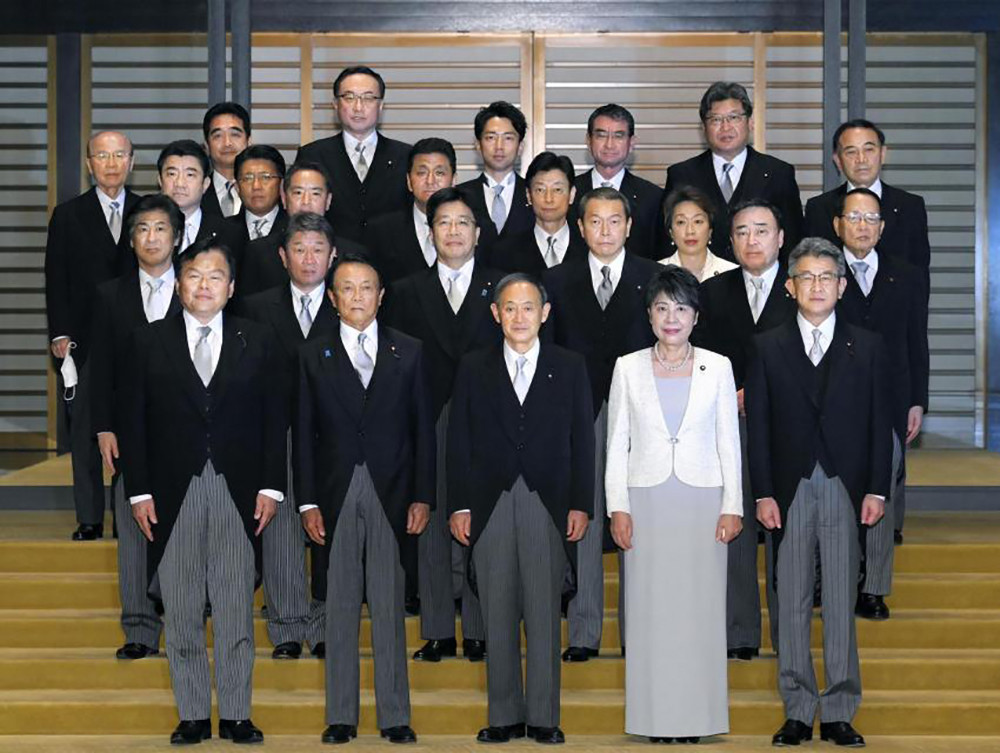 |
| New Japanese Prime Minister Suga Yoshihide and the new cabinet. Photo: Japan Times |
In the context of Japan facing countless difficulties unprecedented since World War II, Mr. Suga has been assigned the mission of overcoming a series of challenges to keep Japan stable. This is a test of the leadership ability of this veteran politician. The biggest advantage is that he is receiving support from factions and the administrative apparatus behind him. It is important that Mr. Suga continues to maintain that support to help the government easily implement policies in the future.
